Monday, September 23rd, 2024
19:00 EEST | 12:00 EDT | 11:00 CDT | 09:00 PDT
Who is this for:
This webinar is perfect for food safety professionals and others who are interested in enhancing their food safety management systems and processes. It is especially valuable for those looking to streamline ingredient monitoring and assessment while capitalizing on emerging risks.
Food Safety Challenge
Many food and beverage companies are increasingly concerned about the impact of unprecedented and unexpected risks to their supply chains. As recall costs rise, the threat of global supply chain disruptions—due to geopolitical unrest and the environmental impacts of climate change—makes it crucial for F&B companies to maintain a constant overview of new and existing risks and hazards. Beyond the financial damage, the reputational harm from a costly recall or a large-scale outbreak that could potentially harm consumers is a significant concern. Companies must move beyond reacting to incidents and instead focus on anticipating them.
How this Webinar Can Help
In response to these challenges, many F&B companies have implemented food safety processes, such as HACCP plans, that help them detect incidents quickly and identify emerging risks for their products. However, the vast number of ingredients and products monitored, along with the varied requirements of manufacturing plants and regions, can make risk monitoring and assessment overwhelming. This webinar will provide strategies to streamline this process, identify emerging risks for the supply chain, inform HACCP plans, and ultimately reduce the number of recalls.
More specifically our agenda will be shaped as follows:
1. Understand the greatest challenges F&B companies face in monitoring and assessing risks for their ingredients and products.
2. Discover how to streamline your HACCP planning by focusing on emerging risks for your supply chain.
3. Learn how to create monthly reports that highlight new and emerging risks for each manufacturing plant, business unit, or across the company.
4. Start implementing a more proactive food safety strategy across your company.
Plus, any other questions that will be posed by the audience in real-time during the Q&A.


.jpg?width=150&height=69&name=EFRA%20Logo%20(1).jpg)